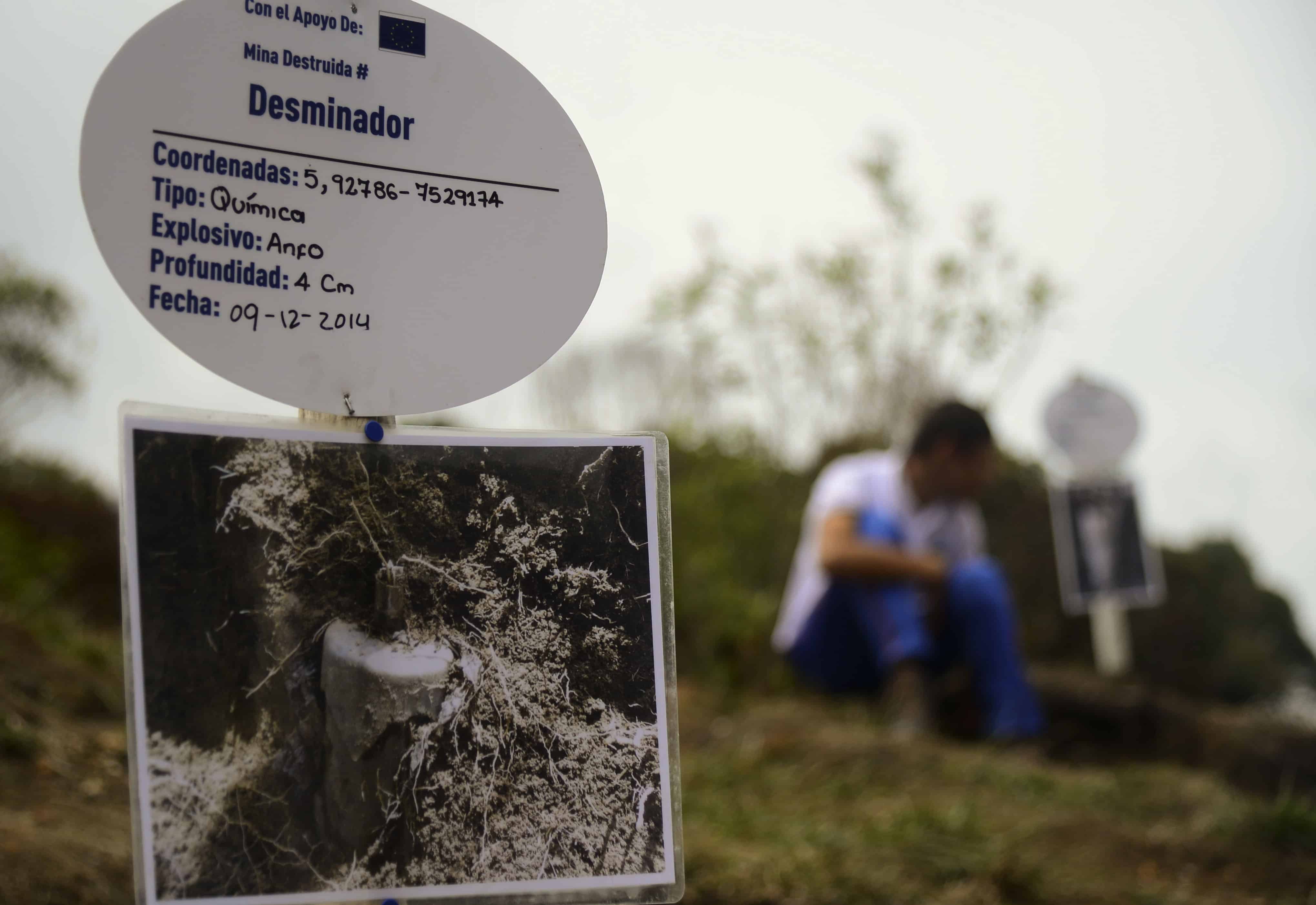As the Colombian government and FARC rebels close in on a landmark peace deal, anti-personnel mines are one of the biggest problems facing the South American country in its post-conflict transition.
Landmines have killed more than 2,000 people and wounded more than 8,000 others in Colombia since 1982, according to the Landmine and Cluster Munition Monitor, an activist group.
“Demining Colombia will take a generation, tens of thousands of specialists and lots of international aid,” Villegas told AFP in an interview.
“Mines are the biggest challenge facing post-conflict Colombia,” said the defense minister, who was appointed in May by President Juan Manuel Santos.
Villegas said the army is preparing a massive training program to scale up the number of soldiers trained to clear mines from 600 today to 10,000 by mid-2016.
The Colombian conflict has drawn in several leftist guerrilla groups, right-wing paramilitaries and drug traffickers since the Revolutionary Armed Forces of Colombia (FARC) launched its uprising against the government in 1964.
The conflict has killed more than 220,000 people and uprooted six million.
It has also left nearly the entire country littered with mines. Of Colombia’s 32 departments, 31 have been hit by landmine explosions that killed or maimed their victims — often civilians, including more than 1,000 children.
In March, the FARC and the government announced an agreement to work together on clearing mines.
After more than three years of peace talks, the Marxist rebels and the government say they are making progress and vowed in September to sign a final accord within six months.
Villegas praised a breakthrough deal on post-conflict justice that set the stage for that pledge.
It would grant an amnesty for all but the most serious crimes and set up special courts to try both soldiers and rebels accused of atrocities, with lighter sentences for those who confess.
The defense minister, who was formerly a government negotiator at the peace talks, called the agreement “very important for peace.”
“This system has the support of the armed forces. It makes ending the conflict viable,” he said.






